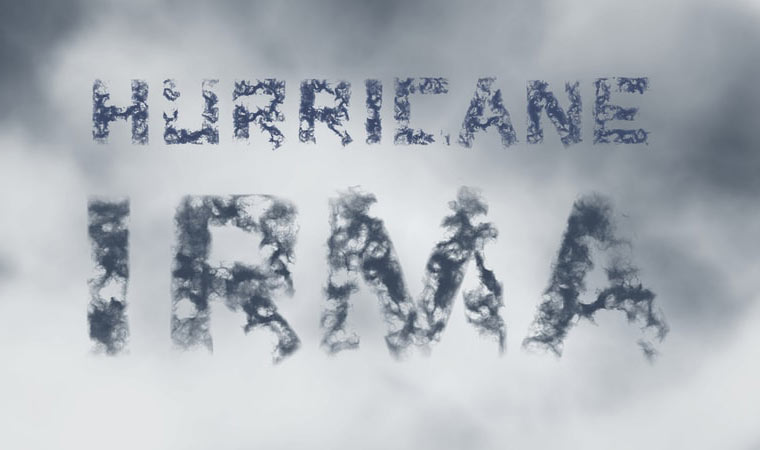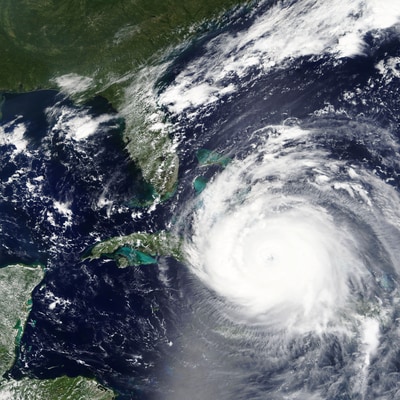- WE’RE HERE TO HELP 24/7
- 800.586.5555
What to Do When a Hurricane Destroys Your Property

The Hurricanes of 2017
August 28, 2018
NFL Players and Workers’ Compensation
August 29, 2018What to Do When a Hurricane Destroys Your Property

The National Weather Service tells you what to do before a hurricane hits – secure your property, leave the state or hunker down and stay inside – but no one tells you what to do during the chaotic aftermath. Around 65 percent of homes in the Florida Keys were damaged by Hurricane Irma1 and more than 273,000 Texas homes were damaged by Hurricane Harvey.2 These hurricane victims have now begun the long process of rebuilding their lives.
What Are Some Tips if My Property Has Been Damaged By A Hurricane?
-
Put Safety First
While you may be relieved the floodwaters have receded, there are still many dangers in the aftermath of a hurricane. Sharp or rusted refuse, gas leaks and fallen power lines can all pose a serious threat. Be wary of bacteria from garbage or sewage, mold and mildew and wild pests that may make your dwelling uninhabitable. If you’re returning to your home after evacuating, be extremely cautious when entering your home for the first time. Flood waters may have eroded or rotted your  home’s load-bearing walls and joists, making the entire home liable to collapse. Check all around your home’s external walls for signs of sagging or collapse before going inside.
home’s load-bearing walls and joists, making the entire home liable to collapse. Check all around your home’s external walls for signs of sagging or collapse before going inside.
Prioritize your safety before worrying about property damage or insurance claims. You may need to relocate to temporary housing or a hotel while your property is being assessed. For less severe damages, you may be able to continue living in your home with temporary fixes like tarps.
-
Review Your Insurance Policies
Read over your insurance policies, calling the insurance company for explanations if necessary. Hurricane damage could be covered by multiple policies, including:
- Homeowner, renter or condo insurance
- Auto insurance
- Flood insurance
- Windstorm insurance
Even if your property has sustained significant damage, be aware that wind or water damage may not be covered by certain policies. You may also have to pay a deductible before your insurance coverage kicks in or there might be limits on your policy.
If you aren’t covered by insurance, there is still hope. Apply as quickly as you can for disaster relief funds through the Federal Emergency Management Agency (FEMA).
-
Act Fast
Payment for insurance claims is first come, first serve. That means the more quickly you file your claim, the better chance your claim will be settled in a timely manner. You may also be in a better position should the insurance company begin to run out of funds and start skimping on payouts in the wake of a large disaster.
Keep in mind that insurance adjusters will be slammed in the aftermath of a hurricane and can only do their job so quickly. There may be 450,000 insurance claims filed for Hurricane Irma alone.3 You do not want to be waiting at the end of a long line of disgruntled property owners!
-
Document Everything
The more evidence you have, the more difficult it will be to dismiss your claims. Here are some things to consider documenting:
- Home inventory – Before a natural disaster hits, you should keep an inventory of all the items in your home, or at least the most expensive items, with any receipts you have.
- Damaged items – After the storm hits, resist the urge to remove any damaged items, or simply move them onto your lawn or put them in your back yard instead of throwing them away. This way, you will be able to show your insurance adjuster the damage in person. If the item must be removed, take plenty of pictures or videos that show the extent and/or cause of the damage.
- Claim number – Your claim number is the primary way insurance companies keep track of their claims. Keep yours handy so you have it ready to go whenever you speak to an insurance employee on the phone.
- Names of insurance employees – Whether the interaction is positive or negative, you’ll want to keep a list of all insurance employees you’ve spoken with along with some notes about what they said. This will make it easier for you to review the information and may be useful in the case of a complaint or dispute.
- Repair costs – It is unlikely you will get your insurance money right away. In the meantime, you may need to make repairs on your home by taking out a loan or paying out-of-pocket. Keep track of all these costs as the insurance company may reimburse you at a later date.
- Living expenses – Insurance may cover living expenses you incur while seeking temporary accommodations. This could include hotel stays and meals. Keep in mind that you may not be eligible for reimbursement of living expenses under flood insurance policies.
-
Ask Questions and Watch Out for Scams
Your insurance company’s customer service or claims agents are there to answer your questions, so don’t be afraid to inquire if something is confusing you. When it comes down to it, your home, car, property and livelihood are on the line. You deserve thorough explanations from your insurance company and compensation if you are covered by an appropriate insurance policy.
Asking a lot of questions is also a great way to deter scammers. If any unsolicited insurance adjusters call or show up to your property, you should be very cautious. People prey on victims of disaster to make a quick buck, but they may not try if you ask questions, since you’ll no longer be an easy target.
What to Do If Your Claim Has Been Denied
If you are a victim of Hurricane Irma or Harvey, taking the steps above can improve your chance of receiving complete compensation for your property damage. However, even if you do everything right, your insurance claim may still be denied with little or no explanation. If you believe your insurance company has wrongfully denied your claim, it may be time to seek legal assistance.
___________
References:
1 http://www.bbc.com/news/world-us-canada-41247063
2 http://abc13.com/harvey-destroyed-more-than-15500-homes-in-texas/2454379/
3 http://www.miamiherald.com/news/weather/hurricane/article172723041.html
